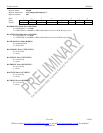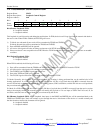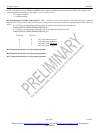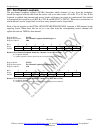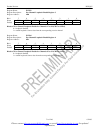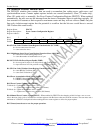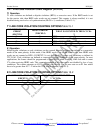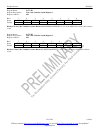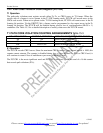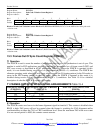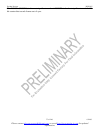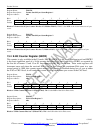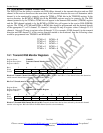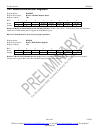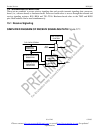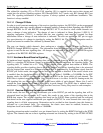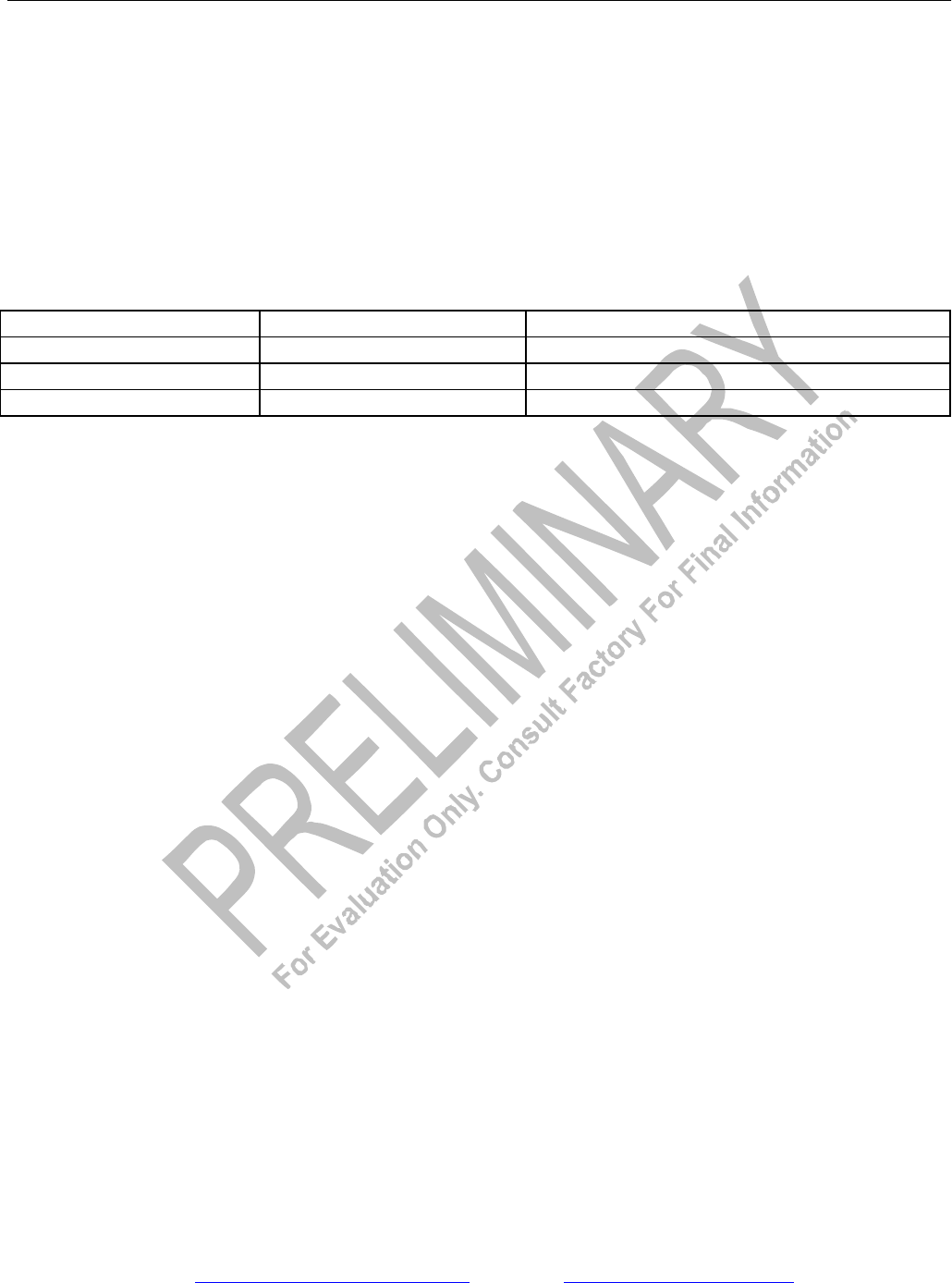
Product Preview DS21Q55
75 of 248 012103
Please contact telecom.support@dalsemi.com or search http://www.maxim-ic.com for updated
information.
13.2 Path Code Violation Count Register (PCVCR)
T1 Operation
The path-code violation-count register records either Ft, Fs, or CRC6 errors in T1 frames. When the
receive side of a framer is set to operate in the T1 ESF framing mode, PCVCR will record errors in the
CRC6 code words. When set to operate in the T1 D4 framing mode, PCVCR will count errors in the Ft
framing bit position. Via the ERCNT.2 bit, a framer can be programmed to also report errors in the Fs
framing bit position. The PCVCR will be disabled during receive loss of synchronization (RLOS = 1)
conditions. See Table 15-3 for a detailed description of exactly what errors the PCVCR counts.
T1 PATH CODE VIOLATION COUNTING ARRANGEMENTS Table 15-3
FRAMING MODE COUNT Fs ERRORS? WHAT IS COUNTED IN THE PCVCRs
D4 No Errors in the Ft Pattern
D4 Yes Errors in Both the Ft and Fs Patterns
ESF Don’t Care Errors in the CRC6 Code Words
E1 Operation
The PCVCR records CRC4 errors. Since the maximum CRC4 count in a one-second period is 1000, this
counter cannot saturate. The counter is disabled during loss of sync at either the FAS or CRC4 level; it
will continue to count if loss of multiframe sync occurs at the CAS level.
The PCVCR1 is the most significant word and PCVCR2 is the least significant word of a 16-bit counter
that records path violations (PVs).



